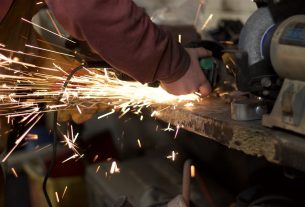Between BMW and Tata Steel, the government subsidies surpassed the half-billion mark this week alone. The government is helping the car manufacturer transition to the production of electric Minis in Oxford while underpinning the steel plant’s transition to a greener future. Though the government support will secure some jobs, many Tata Steel workers fear for their future as the electric arc furnace that is to replace the existing carbon-heavy system will see not only lower emissions but also a reduced workforce. As for BMW, the German car manufacturer announced it would invest £600m to transform the Oxford plant into an all-electric manufacturing site with government subsidies amounting to $75m. Ministers confirmed that the combined money injection will help to secure around 4,000 jobs at the Oxford and Swindon BMW plants. Out of the 8,000 Tata Steel jobs, as many as 3,000 may still be lost during the decarbonisation process.
In July, India’s Tata Group announced it would choose the UK for its first factory outside India with plans to build an electric vehicle battery manufacturing plant. At the time, the Prime Minister refused to reveal the size of the government subsidies which had helped the UK to triumph over Spain in its race to secure a deal. According to the BBC, the government is contributing hundreds of millions.
Tata Steel
Workers are furious over the size of government subsidies as only a far more significant contribution would secure all 8,000. But the government insists it is securing the future of the loss-making Port Talbot steel works and helping it to transition to more environmentally sound manufacturing. Contributing three-quarters of a billion, the Indian conglomerate will use the money to replace two coal-fired furnaces with zero-carbon electric arc incinerators. At the announcement, Tata hinted that decarbonisation would mean “deep potential restructuring”, which many take to translate into significant job losses. The Department of Business and Trade confirmed only 5,000 would remain secure. Unions are furious. At the height of manufacturing in the 1960s, Tata employed over 20,000 people.
General secretary of the GMB trade union Gary Smith told reporters:
“The cost to local people and the wider Port Talbot community will be immense.
“Once again, we have the spectacle of leaders talking up the fantasy land of a ‘just transition’ while the bitter reality for workers is them getting the sack.”
The new furnaces are set to be in operation within three years. Tata reiterated its willingness to engage in “meaningful” talks with unions. Speaking on TV, Narendran, its chief executive, said:
“With the support of the UK government and dedicated efforts of the employees of Tata Steel UK along with all stakeholders, we will work to transform Tata Steel UK into a green, modern, future-ready business.”
But the head of the fair transition unit at the Institute for Public Policy Research think tank, Luke Murphy, accused the government of abandoning and condemning unions and workers. Noting that the German government had invested over £50 billion in decarbonising heavy industry, Murphy said:
“The UK has nothing like the scale of this commitment and has done nothing to make conditions more favourable for investment.”
Oxford BMW to become an electric-only plant
With the 2030 electric-only deadline looming, the government happily announced its financial package for BMW earlier this week. The German car manufacturer said it would start manufacturing two electric Minis in Oxford in 2026, with the plant becoming all-electric by 2030. The £75m taxpayer money injection pushes investment in the car industry past the £6 billion mark.
Speaking on Sky News, Kemi Badenoch, Business and Trade Secretary, said:
“At a time when people are concerned about what the future is going to be like for the auto industry, what we’re saying is that we’re doing a lot, and it is working.”
The car industry has made a solid post-Covid recovery, with sales up by more than a quarter compared to last year. The demand for electric, plug-in, and hybrid electric cars is largely responsible for the recovery.




